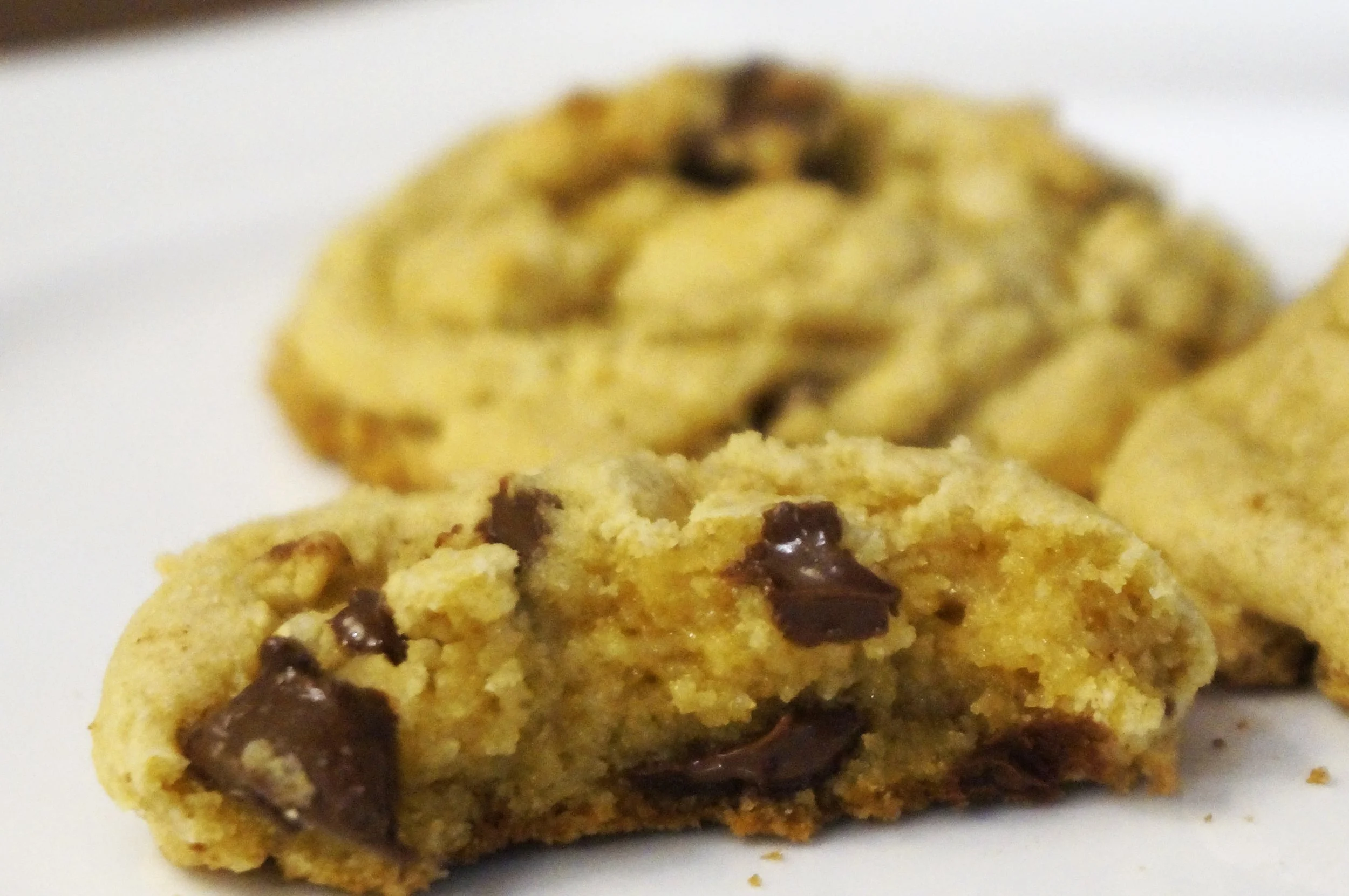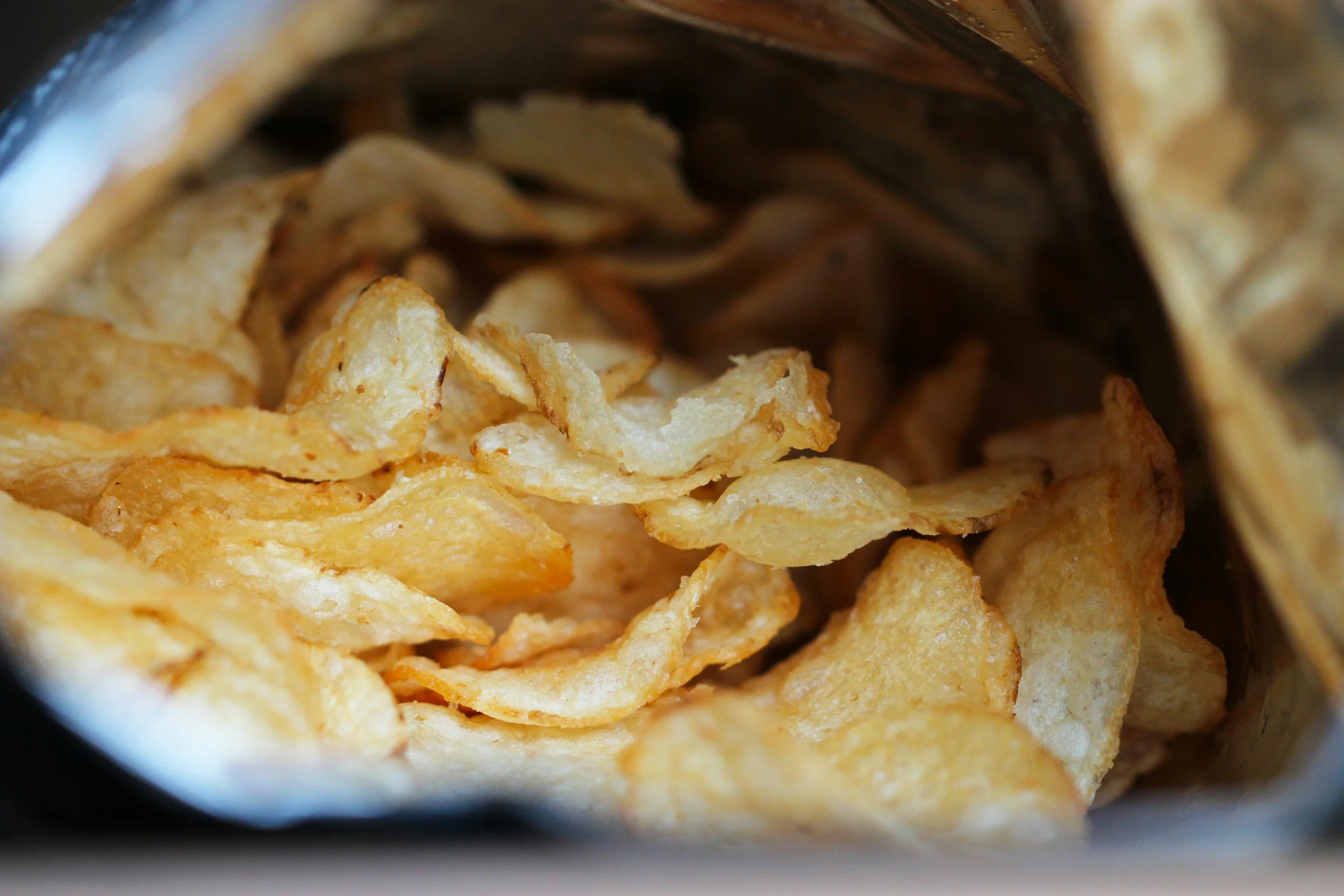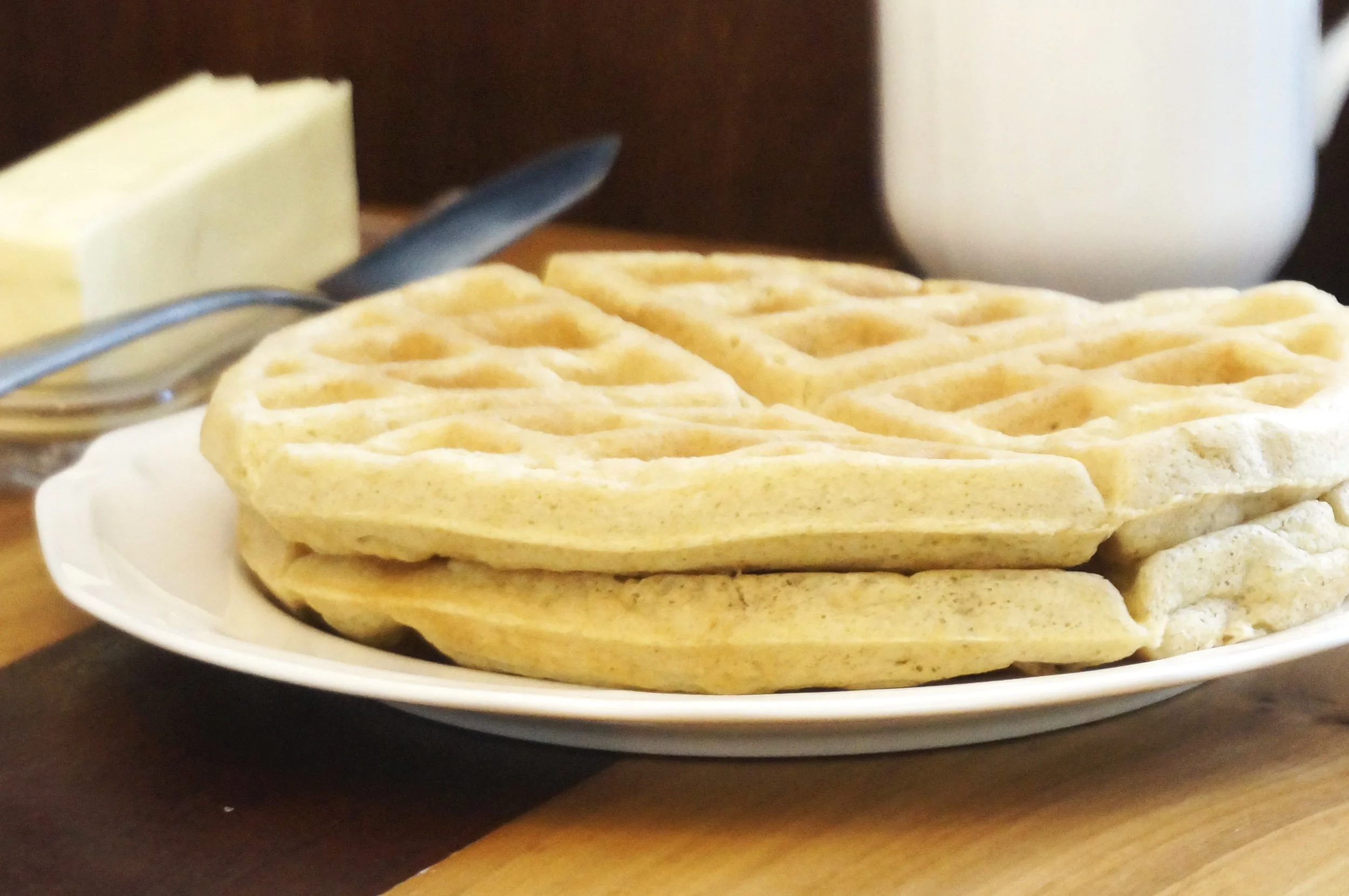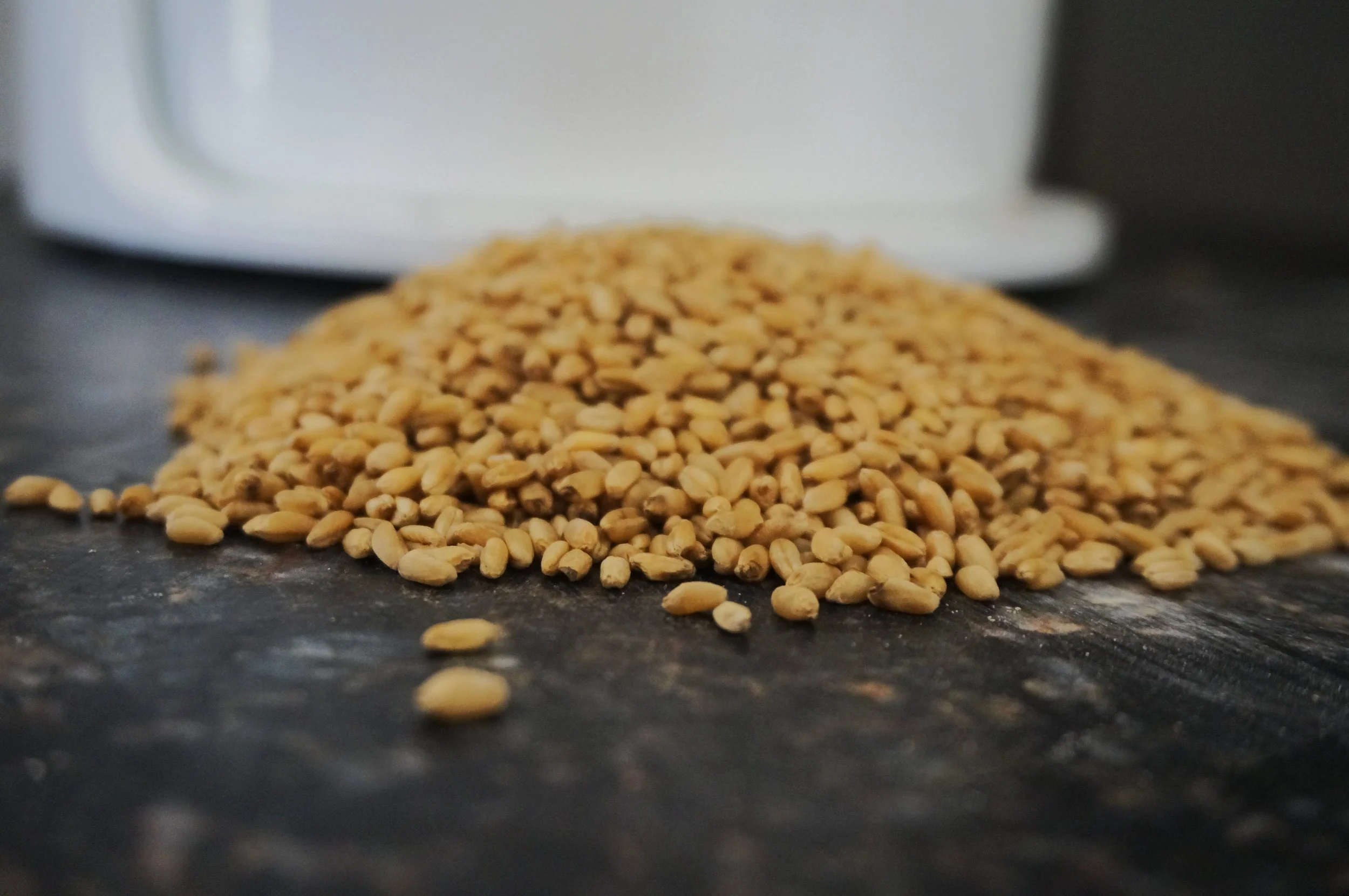Nutrition - My perspective and how it’s changed
Six years ago, I graduated with a degree in Nutrition. To this day I am still fascinated with anything related to healthy eating and wellness. I know to some of you that sounds like torture - sorry. For those unfamiliar with the nutrition world, it is an overwhelmingly diverse field. Plenty of data, research, opinions and a good deal of controversy are all included in dietetics. Plus, recommendations of what is “healthy” is always changing. Since graduating and becoming a full-time mom and homemaker, I have continued to learn and change as well. I thought it might be fun to highlight and discuss some of these changes.
But before we dive into these shifts in my perspective, let’s talk about a few points that have stayed the same.
Everything in Moderation
Growing up, I was occasionally reminded by my mom, “Everything in moderation.” I’m so thankful for that reminder and still believe that it remains true for nutrition (and so many other areas of life as well). We all need balance in our diets. That balance will look different for everyone of course, but we all need it. And it’s important to note this applies to all food. We know eating too much junk food is bad for you, but eating pounds of carrots or a box of protein bars every day is not healthy either.
Another way I have heard it said is to follow the “80/20” rule. This is where one strives to eat “good-for-you foods” 80% of the time, while allotting the other 20% as their allowance for “cheat” foods. However you want to think about it, it’s important to give yourself wiggle room to eat that chocolate chip cookie:)
There is no cure-all diet.
I have something against diets. There, I said it. A diet can serve as a good guide for when a person needs to change their eating habits. It can provide structure to get someone on a healthier track. In general, though, I think it’s unhealthy to have strict rules about food. Every individual is different. Everyone has to find what works for them. Instead of following a list of dos and don’ts, I think it’s extremely beneficial for each person to learn to listen to their body and develop their own “diet” based on their needs, not someone else’s ideals. For more on how I approach eating and nutrition for my family, check out my first ever blog post.
Diets have a common thread.
With that being said, there is one theme that all diets have in common. Have you noticed? One way or another, diets cut out processed foods. This is key. I’m not saying make a rule against all processed food (remember, don’t fall into the trap of dos and don’ts) but rather learn to curate a style of eating focused on whole foods. Think about it. Processed foods contain all the “things” diets avoid. Gluten, fat, simple carbohydrates, starches, etc. The culprit may not be a specific nutrient. What if instead processed food and its high concentration of the “bad-for-you” stuff is to blame? If one can keep the processed foods to a minimum (as a guideline and not a strict rule), they can reap the benefits of healthy eating without the strict regimen of a diet. And remember - everything in moderation.
Always reach for the “real” version.
Food science can create some pretty amazing products. There is a time and place for them. Overall, I think the day-to-day food intake of individuals needs to focus on the “real deal” foods, not imitations of them. I’m talking butter instead of margarine, sugar instead of artificial sweeteners, etc. Once you start chemically manipulating ingredients and adding extra steps to produce something, it just gets more complicated. My strategy has always been to stick to the “original” foods and avoid the imitation options.
What has changed…
Here’s the good news about learning - it gives you the opportunity to change your mind. I don’t ever want to come across as someone who is an expert in nutrition (or anything for that matter). These changes in my perspective reflect both the continuing advances in the study of nutrition and an expansion of my personal experiences. And who knows? After several more years I probably back with different thoughts. My point - never stop learning.
Now on to what I’ve learned…
Protein
I actually remember a professor saying that many people’s protein intake was too high (while I had another who followed a keto diet - see what I mean about the diverse world of nutrition?). Years later I have witnessed the protein trend - 30 grams per meal or 100 grams a day- become very popular. I’m thinking now that maybe protein deserves a little more attention than I originally thought. I still stand by my thought that eating real food protein and not the powdered stuff is the way to go, but I have been paying more attention lately to my protein intake, both the amount and sources.
Breakfast
I was a huge stickler when it came to the first meal of the day. Maybe it being my favorite meal caused me to think it was superior to all others. Or there’s the whole adage “Breakfast is the most important meal of the day.” Regardless of my reasons, my perspective has changed.
I used to wake up and immediately eat. Recently, however, I’ve pushed breakfast later into my morning as a way to give my body a little more time for fasting and to rest from digestion. There are lots of different protocols for intermittent fasting. I do not understand or agree with all of it, but I have been convinced that breakfast is not the “end all, be all” to the fate of your health. Okay, that’s pretty dramatic. But you get what I mean. Remember, this is something I have changed my mind on recently, but that doesn’t mean anyone else has to. And I’ll say it again - do what works best for you!
Carbohydrates
I ignorantly thought that the interactions of carbs, blood sugar, and digestion of food were generally the same across the board. As a Type-1 diabetic, my husband has shown me that a person’s reaction to a food is much more personalized than I first realized. What might cause a blood sugar spike in one person may have a much less dramatic effect in another. All of that to say, glycemic index and carbohydrate labels, among other measures, are not cut and dry. Once again, each person needs to pay attention to their body and find what works best for them - not just looking at a number on a box.
Fermented Foods
Probiotics are all the rage right now. We touched on them in school, but I don’t remember it being a huge thing. Basically, it was said “eat yogurt because it has good bacteria.” It was only until later in life I learned how to take in other sources of probiotics besides yogurt. Sauerkraut, fermented cucumber pickles, kefir, pickled red onions, kombucha - there are so many different ways to add fermented food to your diet. Even more interesting, I learned I could make my own healthy fermented foods at home! Whichever foods you choose, incorporating probiotic power foods throughout the week can have beneficial health effects including a boost to your immune system, aiding in digestion, plus other benefits.
Whole Grains
Wheat berries before they are milled into flour.
This may be more of a hobby (okay, that sounds pretty embarrassing;), but I was not aware of the range of grains out there and how diverse their preparation could be. In school we talked about fiber and how good it is for you and all the things. Similar to the probiotics, though, I thought the main way of getting whole grains was through a piece of whole wheat bread or a bowl of oatmeal. While those are great options, they are not the only ones. You’ve got plenty choices. You can bake with a variety of flours - spelt, Kamut, rye, millet, barley, einkorn, oat. You can even go as far to buy a grain mill to make your own fresh flour.
Baking isn’t the only way to get in your whole grains, however. You can also cook with them - couscous, quinoa, rice, farro, grits. I think in our American culture we have limited our view of grains to be only for breakfast cereals or sandwich bread, but they have so much more to offer!
Food for Thought
Just as this entire section of the website is called “Food for Thought”, so is the premise of this article - points to consider and think about for yourself. I don’t want to appear as an authority figure on these topics. I want to be someone who brings bits and pieces of the crazy nutrition world to others so that they can digest it (pun intended) and in turn apply it to their own lives in a personal way.
I would love to hear your thoughts and what you have learned over the years in the comments!




